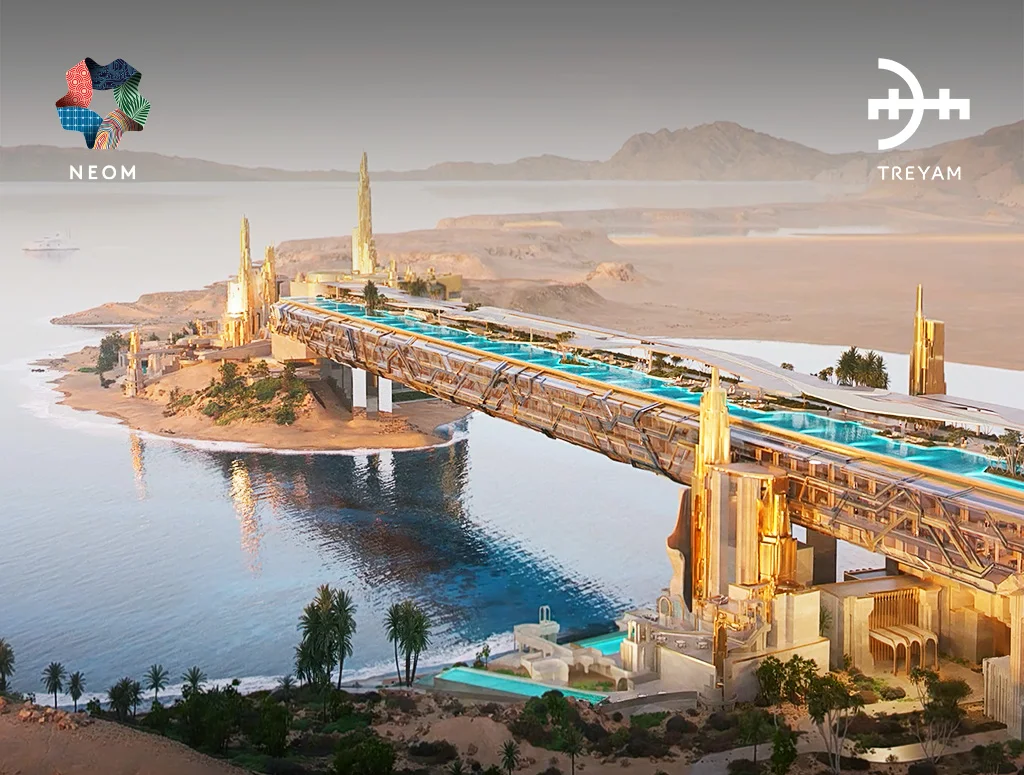
Saudi Arabia is seeking China's assistance to fund its ambitious Neom megaproject which is estimated to cost around $500 billion. The Neom project, which is a part of Crown Prince Mohammed bin Salman's Vision 2030, aims to create a futuristic city that promises to integrate smart city technologies with a sustainable environment.
Recently, representatives from Neom visited Beijing, Shanghai, and Hong Kong to attract Chinese investors and provide insights into the project, which has been somewhat enigmatic. Despite the efforts, no major deals have been announced yet. There have been reports suggesting that investors may have reservations due to the scale and financial realities of the project.
The Neom megaproject includes ambitious plans such as The Line —a 105-mile-long futuristic city—and other components like Oxagon, Trojena, and Sindala. However, there are concerns about the viability of the project, with reports indicating that Saudi Arabia has started borrowing to fund Neom and other related projects.
China's perspective on Saudi Arabia's Neom project appears to be cautiously optimistic, with a focus on potential economic collaboration and investment opportunities. Chinese officials and investors have shown interest in the project, as evidenced by the recent roadshow in China where Neom representatives visited Beijing, Shanghai, and Hong Kong to attract Chinese investors.
The executive director of Neom, Tarek Qaddumi, has emphasized the project's goals of balancing nature conservation, human livability, and economic prosperity. The project has been described as one of the most exciting and forward-looking initiatives of the 21st century. However, reactions from potential Chinese investors have been described as "mostly neutral," with some expressing concerns about the project's ambitious nature and comparing it to a game-like environment.
Additionally, there have been discussions about the integration of Neom with China's Belt and Road Initiative, highlighting the importance of Chinese participation for the development of the city and its integration with global flows of goods, capital, and people.
It's important to note that while there is interest, no major deals have been announced following the roadshow, and there are reports suggesting that Neom's construction and population targets are being scaled back, which could affect investor sentiment.
Notably, there has been opposition to the Neom project within Saudi Arabia, particularly from the Howeitat tribe. Members of this tribe have been vocal about their forced displacement from their ancestral lands to make way for the Neom development. This has led to significant tension and conflict, including the tragic case where three men from the Howeitat tribe were sentenced to death for refusing to vacate their homes.
Moreover, the killing of a Saudi tribal activist, Abdul-Rahim al-Howeiti, who was protesting his eviction as part of the construction of Neom, has further increased local tensions over the project. These events highlight the complex social and ethical challenges associated with the development of such a large-scale and transformative project.
The project has also faced criticism for potential environmental and human rights violations. Some experts have expressed skepticism about the feasibility of the megaproject, and there have been reports of expatriate employees describing abusive working conditions.
Despite all this, the Neom project is also planning to issue bonds for the first time, Bloomberg reported last week. The megacity project could raise up to $1.3 billion by selling Islamic bonds, or sukuk, reported Bloomberg, citing unnamed sources privy to the development.
The Neom road show has also visited Seoul, Tokyo, Singapore, New York City, Boston, Washington, D.C., Miami, Los Angeles, San Francisco, Paris, Berlin, and London.















 IndianWeb2.com is an independent digital media platform for business, entrepreneurship, science, technology, startups, gadgets and climate change news & reviews.
IndianWeb2.com is an independent digital media platform for business, entrepreneurship, science, technology, startups, gadgets and climate change news & reviews.



